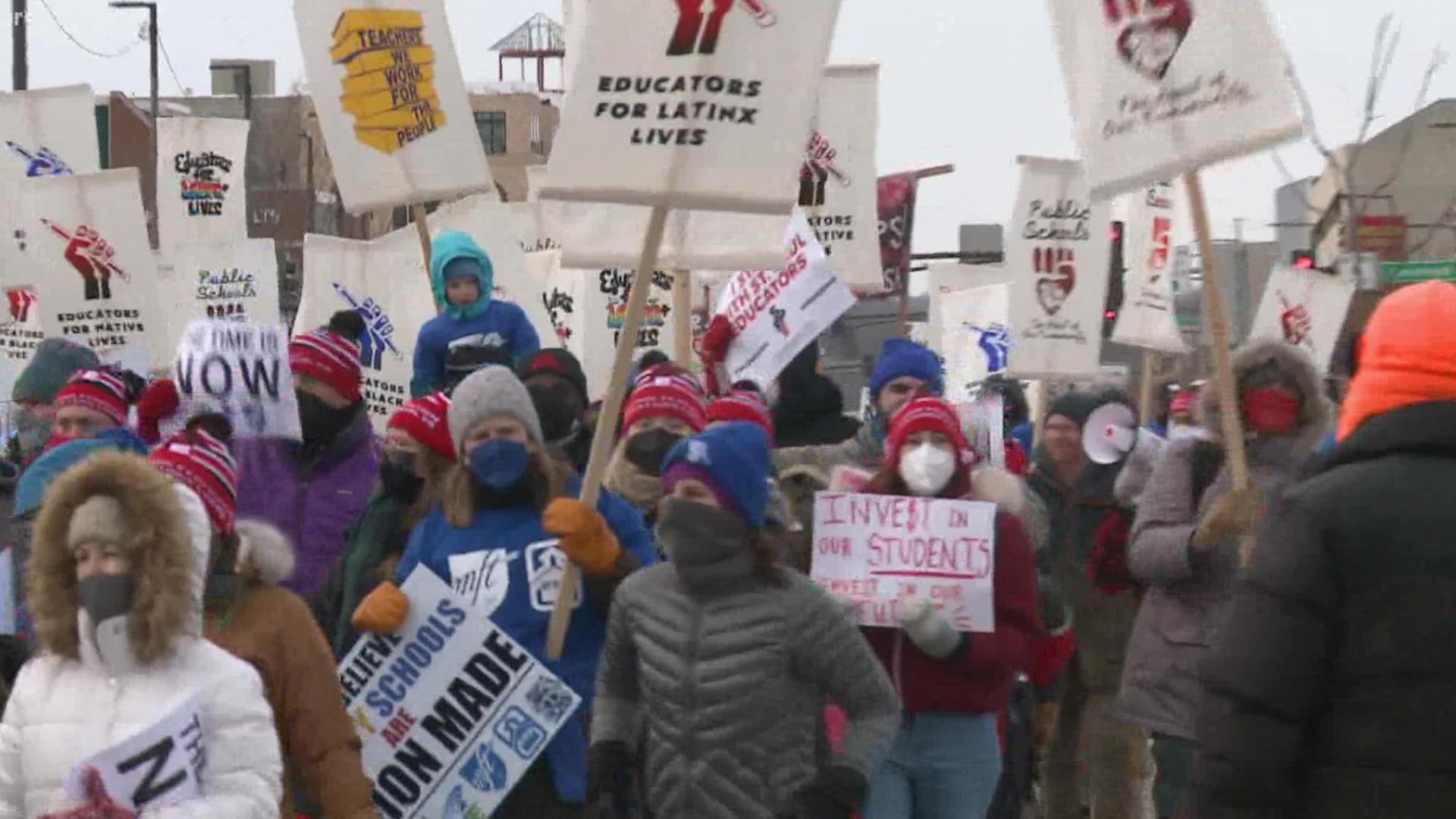MINNEAPOLIS — Starting on Monday and running through Thursday, Feb. 17, Minneapolis Public Schools teachers will have the opportunity to cast a ballot and decide if they support or oppose a teachers strike.
The Minneapolis Federation of Teachers (MFT) and the public school district have been going back and forth, trying to agree on a contract that both sides feel is fair.
But since they haven't been able to reach consensus, a strike could be looming.
If teachers approve a strike, the union would still have the final say on if a strike was needed, and would then make a formal notification to the school district if the strike was approved.
MPS teachers are asking for smaller class sizes, higher wages, and better mental health resources, as well as better COVID-19 precautions. MFT also wants to see improvement when it comes to supporting and retaining educators of color.
"It's the most stressful school year ever and we cannot allow our children to go through one more day of current conditions, many of which are years in the making," said Greta Callahan, president of the teachers chapter of the MFT.
MPS Superintendent Ed Graff sent a letter to parents on Monday on what to expect with a potential teacher strike saying, "...our staff and MPS as a whole remain committed to our students while recognizing the needs of our educators. At the same time, we cannot deny the potential ramifications of a strike after nearly two years of disruptions related to the COVID-19 pandemic."
Superintendent Graff went on to say that if teachers authorize a strike, all classes would be canceled for the duration of the strike. Graff said those missed days would need to be made up later to meet state and graduation requirements, potentially extending the school year into summer and delaying graduation.
Callahan responded saying, "There's no law saying that students have to make up those days if we are out on strike. So that part was especially frustrating because it isn't true at all."
A spokesperson for the Minnesota Department of Education explained to KARE 11, "The minimum number of instructional hours that is required for Minnesota schools is laid out in statute. It’s pretty common that schools add a couple of extra days over the minimum to their planned school year if they have a snow day or there’s a power outage, or any other reason where instruction might not happen as planned. If for any reason a school does not meet the minimum number of required instructional hours, they would need to add more days to their school calendar to meet that minimum."
Graff's letter also details the district's position in support of fair compensation for teachers, but claiming the federation's proposals are "not fiscally feasible."
"It's a time of empowerment after many years of feeling like many of us couldn't keep going on and we've lost, as you know, hundreds of educators from our chapter alone in the last year and a half," Callahan said. "A teacher said to me, 'This is my last step before resigning.' So it's exciting to think that there is hope."
Votes will be counted on Thursday night, and the results are scheduled to be announced that night. Callahan said the next mediation is scheduled for Friday.
If the union did approve a strike, it would be the first since 1970.
Over in Saint Paul, teachers at the Saint Paul Public Schools district are also considering going on strike. They begin voting on Thursday.

